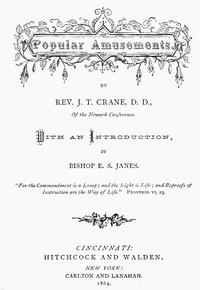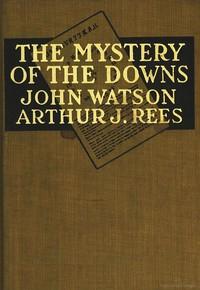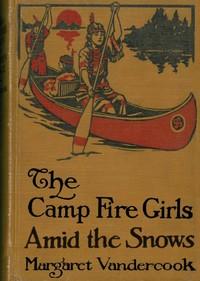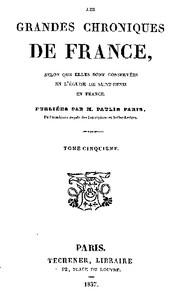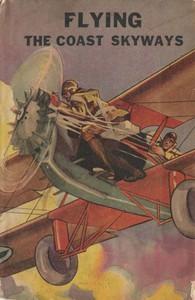|
|
Read this ebook for free! No credit card needed, absolutely nothing to pay.Words: 29847 in 6 pages
This is an ebook sharing website. You can read the uploaded ebooks for free here. No credit cards needed, nothing to pay. If you want to own a digital copy of the ebook, or want to read offline with your favorite ebook-reader, then you can choose to buy and download the ebook.

: Popular Amusements by Crane J T Jonathan Townley Janes Edmund S Edmund Storer Author Of Introduction Etc - Amusements Religious aspects@FreeBooksWed 07 Jun, 2023 amusement. A good name is an element of strength. Unless those around us have confidence in our sincerity, we are shorn of our moral power. No matter how clear our integrity may be in our own eyes, if we fail to convince the world of it; if we seem to be less careful of obligation, less mindful of the right than Christians should be, there will be a cloud of distrust hovering about us wherever we are, and we will find ourselves shut out of some of the noblest fields of effort. The world watches our recreations as well as our more weighty employments. We need not, indeed, be governed always by the reproaches of the censorious and the complaints of the morose; still, it is never safe to be indifferent to popular opinion. Even where we discover no evident wrong, we should not, for the sake of mere momentary pleasure, give ourselves to any pursuit which bears a specious name or is surrounded by doubtful associations. Even in Christian communities public opinion does not tend to be fanatically rigid, and we may be sure that what it condemns we will find it safe to avoid. Nor should our recreations ever be of such a character as to wound our fellow-Christians. It is true, you need not always be controlled by the views of this or that member of the Church, who, perhaps, does not abound in the intelligence and wisdom which give weight to opinion. But what does your pastor think? If you and he differ, who is probably right? Look about you. See who they are in your community who are universally acknowledged as the real disciples of Christ, by whose aggregate good name the Church stands in reputation. What do they think? Where they doubt, you may well hesitate. Even if they should seem needlessly scrupulous, you may be sure of one thing--you will not find it dangerous to follow their counsel. And you have no right to treat their admonitions with indifference. You can not, without peril, go counter to their views of duty. Whatever may be the abstract right or wrong of the thing in question, this evil effect, at least, will follow your rejection of their advice: you will separate yourselves from your pious exemplars and guides; the chasm, however narrow at first, will widen with time; the society of your fellow-Christians will lose its charm; the social forces which helped, more than you are aware of, to hold you to your duty will lose their power; the Tempter will excite in your heart now anger at others, now doubts of yourself, and the process, unless arrested, will end in spiritual wreck and ruin. Childhood and youth are not, as some fancy, a period of mere waiting, a sort of play spell before school begins. In regard to the success of after life, it is the hour of precious opportunities which come but once. It is the foundation upon which the whole future edifice is to rest. If a child should never learn the things which an infant one year old usually knows, he would grow up in a state of idiocy. In their very plays, as we term them, children investigate the properties of matter, acquire ease and skill in managing the bones and muscles of their own frames, and learn the contents of the great world, which is all so new to them. Youth has its work, and all after excellence is connected with the industry and care with which that work is done. The mind is to be cultured, the reason exercised, the fancy curbed, the memory stored with treasure, the whole intellect disciplined and prepared for continuous, patient labor. In youth the avocation is to be chosen, the great problems of time and eternity revolved, and the solemn journey begun. He that would be wise must not dream away the golden hours in empty visions of what he would like to be, but rouse himself and prepare to encounter soberly the great duties before him. He has not a moment to lose. He must look and listen, read and remember; he must reflect, and reason, and judge; he must will and do wisely and well, and every day gather strength for other days to come. If, therefore, diversions are of such a nature, or are so pursued as to induce an idle, dreamy, inconstant frame of mind, making it an annoyance and a burden to be summoned to real work in careful thinking or patient doing, a resolute grapple with the plain responsibilities of ordinary life, something is wrong. When the imagination has outgrown the judgment, and the mind revolts at reality and delights to dwell in the realms of fancy, building destinies out of airy nothing, we can see foreshadowed, as we look into the future, only bitter disappointment and failure. Health is the material of which efficient life is made. They who squander it cut short the day which God assigned them, cloud it with weakness and pain, and lessen the practical results of living. To do this willfully, deliberately, in the chase after mere pleasure, is not a small sin. Our Creator requires of us the wise and faithful use of the various elements of activity and power with which he has endowed us. If, then, the hours spent in what we call diversion be followed by exhaustion; if the evening of mirth be succeeded by a day in which the brow is clouded, the frame languid, the mind irritable, the whole being disordered, there has been something wrong, either in the nature of the amusement or the manner in which it was pursued. To be well and strong, if we may, is our duty. Our recreations should not lessen but increase our power to will and to do. They are designed to sharpen the tools with which we work, and if the process which we adopt mars the blade our methods are bad. The value of the mode is to be estimated not merely by the present pleasure, but by the power, gained by it. If the mower in the meadow is enchanted with the rattling, ringing music which accompanies the whetting of the scythe, but at each repetition finds the edge duller than before, till finally he can not cut the grass at all, he might as well be standing among those whom "no man hath hired." Money is power. It may be made to feed the hungry and clothe the naked. It may be employed in teaching the ignorant and reclaiming those that wander. It plays an important part in all good works. He that squanders money throws away the ability to do good. He "wastes his Lord's substance." In Christ's description of the day of Judgment, the stress is laid, not upon names, professions, and beliefs, but the tangible fruits of piety. We must beware, therefore, lest our self-indulgences tax our purse too heavily, and leave too little for good deeds. The hour is not far distant when the memory of one kind act will be to us the source of more pleasure than the recollection of all the selfish joys of a life-time. It is to be feared that some professors of religion, who lack neither opportunities nor means to do much, will make rather a poor showing at the last great day. Time is one of God's most precious gifts. It is the material of which life is made, the field in which eternal destinies germinate, the Summer in which divine things grow. We have no more right to lay plans to "kill time" than to kill ourselves. The suicide rebels against the duties assigned him by Providence, deserts his post, and throws from him the years otherwise allotted him. The aimless, idle soul, without a purpose or a plan, whom no incentive can stir, and to whom life is a weariness, because there seems nothing for which to live, commits a daily suicide. Wealth is no excuse for uselessness. When children play all their lives because their fathers worked hard from youth to old age, they take rather a doubtful way to honor their parents. If a man has no sober aim in life, no worthy object for which he is stirring, God will not hold him guiltless. Genuine recreation harmonizes with all high and holy enterprise. It does not make us drones, living upon the stores which the working bees of the hive have accumulated, but teaches us, like the son of Saul, weary and faint in the rapid pursuit of the foes of Israel, to stop for a moment to taste the honey dripping in the forest, that our "eyes may brighten," and we press on with swifter feet. Genuine recreation wastes no time, but, on the contrary, treasures up the golden moments with a miser's care. Diversions indulged in beyond measure cease, therefore, to be recreations, and become a criminal waste of God's precious gift. They should not, indeed, burden the mental powers; nevertheless, they ought not to be childish and without meaning. There should always be enough of thought involved to keep the mind pleasantly and not unprofitably occupied. For this reason recreation is best pursued not alone, but socially. Cheerful, intelligent conversation is itself one of the best of recreations. The heart is improved, the mind is roused into new vigor and fruitfulness, the thoughts are wrested away from toil and care, and smiles break through the gloom like sunshine bursting through the rifted clouds. The very idea of recreation includes that of pleasure. If it leaves us sad or dull it fails of its true aim. It ought to make the eye bright and the cheek glow. It should have an affinity for smiles, and pleasant words, and mirthful thoughts which glance like the play of the northern Aurora when the night is cloudless. It should leave memories in which there is no tinge of shame or regret. We attach importance to the innocent pleasure of the moment, because the benefit is derived in no small degree from the mind's release from its burdens. A company of school-girls, silent and prim, taking their daily march with the mechanical accuracy of soldiers, lose half the value of the air and exercise. The merchant gains little who goes on a solitary fishing excursion, and sits gazing at vacancy, with his brain full of invoices and sales, units and tens, while the fish run away with his line. Let the young and the old seek suitable recreation and enjoy it, in a genial, happy, mirthful spirit. Innocent mirth is neither unchristian nor undignified. If a man can not laugh, there is something the matter with him. Either his morals or his liver is disordered. He needs either repentance or pills. Some of earth's greatest and purest men have been noted for their mirthful tendencies. Socrates often amused himself in play with children. Luther loved dogs, and birds, and wit, and laughter, and by his rousing peals kept his lungs in good order for his theological wars. Thomas Walsh, one of the best, but not the most hilarious of men, complained that John Wesley's wit and humor made him laugh more than his conscience approved; but Mr. Walsh died in his youth, while Mr. Wesley filled up the measure of eighty-eight busy, happy years. Free books android app tbrJar TBR JAR Read Free books online gutenberg More posts by @FreeBooks
: The Mystery of the Downs by Rees Arthur J Arthur John Watson John R John Reay - Detective and mystery stories; England Fiction@FreeBooksWed 07 Jun, 2023

: The Camp Fire Girls Amid the Snows by Vandercook Margaret - Bildungsromans; Adventure stories; Camp Fire Girls Juvenile fiction; Missing children Juvenile fiction; Young women Social life and customs Juvenile fiction; Young women Societies and clubs Juveni@FreeBooksWed 07 Jun, 2023
|
Terms of Use Stock Market News! © gutenberg.org.in2025 All Rights reserved.

